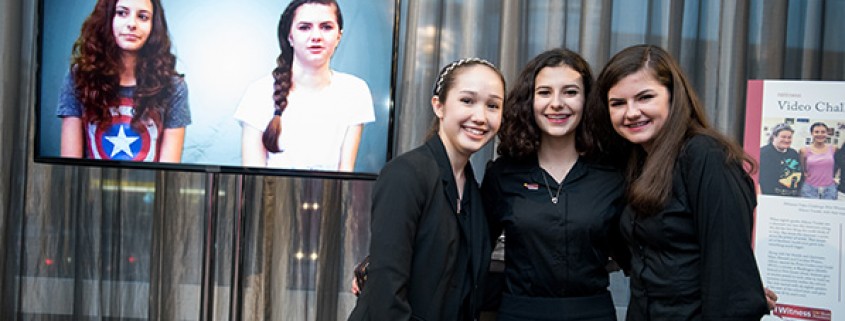Shoah Foundation aims to teach history, compassion in high schools
The USC Shoah Foundation will implement 100 Days to Inspire Respect, an initiative aimed at providing teachers easy-to-use tools to address important and sensitive classroom topics. Starting Jan. 20 and ending on April 29, the plan was inspired by President Franklin D. Roosevelt, who announced an aggressive 100-day agenda after assuming office in 1933.
100 Days to Inspire Respect concentrates on middle and high school students and their teachers. Weekly themes will include hatred, racism, civil rights and immigration. Each day, a new IWitness learning activity will be released by USC Shoah Foundation’s Education Department. Multimedia from the Institute’s Visual History Archive, the world’s largest repository of testimony from survivors and witnesses of the Holocaust, will also be provided to teachers and their students on a daily basis.
IWitness is a free educational website with over 1,500 video testimonies, multimedia activities and digital resources. The platform encourages students to participate actively in a type of learning that connect students with the past, engage them in the present and motivates them to build a better future. The IWitness program also encourages students and teachers to enter its annual Video Challenge, in which they compete for over $10,000 in prizes.
Kori Street, director of education at the USC Shoah Foundation, emphasized the power of testimony to make an impact and familiarize students with the importance of testimony as a valuable source of knowledge.
“By completing the learning activities we built around clips of video testimonies from genocide witnesses, high school and middle school students learn about the need for compassion and the importance to make a positive contribution to civil society,” Street said.
Though the mission’s goal is directed at middle and high school students, Street emphasized that USC students can contribute to the initiative as well by watching the testimony, sharing their ideas for further projects and modelling respectful behavior.
The first three days will emphasize the power of testimony to educate the community and connect people. The remaining days will address themes of countering hatred and intolerance. Participating students will familiarize themselves with the different types and expressions of hate, tolerance of competing perspectives and the means by which people are excluded and labeled “othered.”
Succeeding the 2016 presidential election, intimidation and coercion has been reported by teachers across the nation. According to the Southern Poverty Law Center, there have been over 900 reports of harassment and tyranization in schools. California had the largest number of hate incidents with 99 reports, followed by New York with 69 and Texas with 57.
Street touched on the importance of this campaign in relation to America’s current political tide.
“Fake news, cyber-bullying and face-to-face bullying are all manifestations of rising divisions and rising hatred and racism,” Street said. “But I think it is important to note that we are not focusing on political partisanship. This isn’t about the President-elect, it’s not about parties. It’s about saying, ‘You know what, we all need to be respectful and empathetic and knowledgeable and engaged.’ We need to find our way back to when we could have political or personal dialog and differences without it descending into an inappropriate Twitter war.”


endless indoctrination designed to erase any sense that white Americans are allowed to have a safe and secure homeland